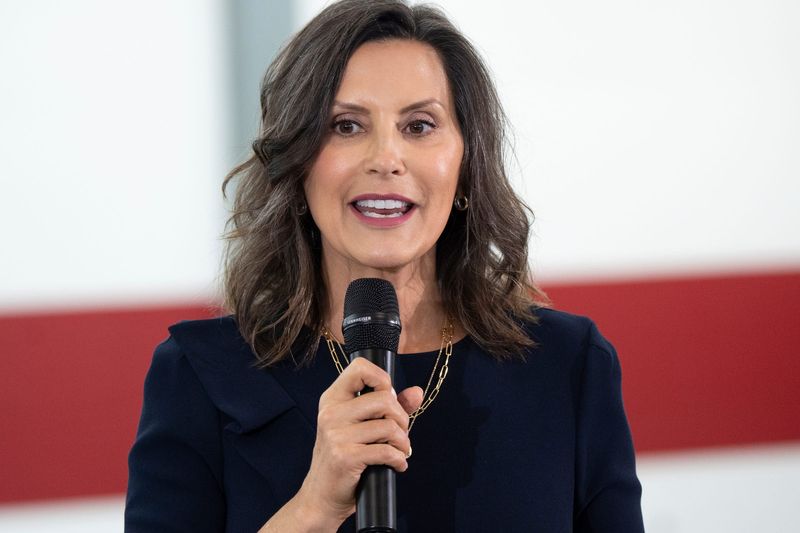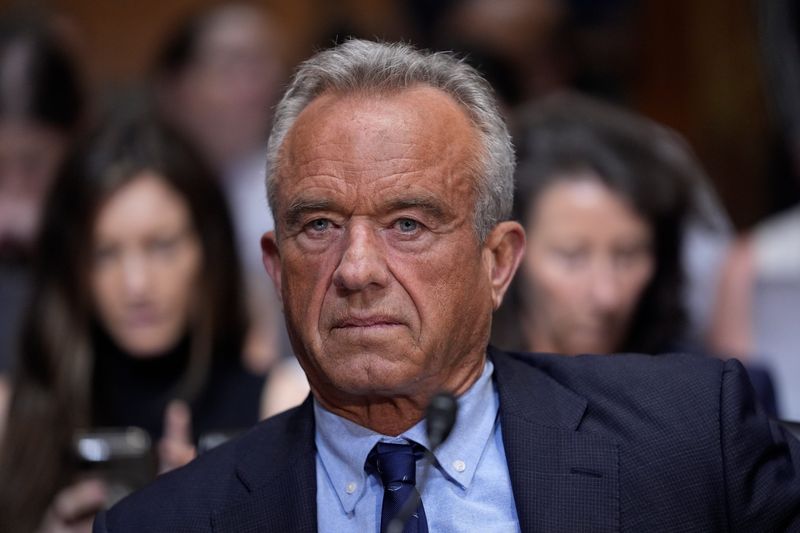With rapidly changing federal vaccine policy and confusion about guidelines, eligibility and insurance coverage, Gov. Gretchen Whitmer signed an executive directive Wednesday, Sept. 17, that orders state agencies to identify and remove barriers that could hinder Michiganders’ access to COVID-19 vaccines.
“Cold, flu, and COVID-19 season are upon us,” Whitmer said in a statement. “We all have a role to play in keeping our communities safe and healthy. Today’s executive directive ensures Michiganders can get the COVID-19 vaccine if it’s right for them. According to medical experts, vaccines remain the most effective way to stay healthy.”

Whitmer’s directive instructs the Michigan Department of Health and Human Services (MDHHS), the state Department of Insurance and Financial Services (DIFS) and the Department of Licensing and Regulatory Affairs (LARA) to:
It wasn’t immediately clear exactly how those departments will carry out the governor’s directive.
Dr. Natasha Bagdasarian, the state’s chief medical executive, said the details at MDHHS are still being worked out, but she appreciates “this statement of support for vaccines from our governor.”
“It means a lot to us in public health, and it means, I think, a lot to folks in Michigan who want COVID vaccines and have been hearing about some of the barriers and hurdles this year. … We’ve got confusion about guidance. We’ve got some confusion about health plan coverage. We’ve got confusion about where people can go to get vaccines, and we’ve got to clear that up for people.
“This is a step in the right direction — a supportive move for vaccine access. … This is all about folks being able to make choices that are best for themselves and their families.”
Michigan joins a growing list of states where governors and public health leaders have announced efforts to improve access to COVID-19 vaccines as U.S. Health and Human Services Secretary Robert Kennedy Jr. makes unprecedented and sweeping changes to the ways in which vaccines are recommended and reviewed nationally.
Kennedy announced in May that the U.S. Centers for Disease Control and Prevention would no longer recommend COVID-19 vaccines for healthy children or pregnant women. And in August, the U.S. Food and Drug Administration changed the labels on the vaccines, saying they should be given only to people older than 65 and to younger Americans with at least one preexisting health condition that puts them at high risk for severe disease with COVID-19.
He also fired Susan Monarez, the director of the CDC, following a dispute over vaccines, and dismissed all 17 members of an independent vaccine advisory panel that makes recommendations to the CDC. He replaced them with his own appointees, many of whom are vaccine skeptics.
Called the Advisory Committee on Immunization Practices (ACIP), the newly picked members of the panel are scheduled to meet Sept. 18 and 19 to discuss the safety and efficacy of vaccines that protect people from measles, mumps, rubella, chickenpox, hepatitis B and COVID-19.
That has many worried about whether further limits could be placed on long-approved and recommended vaccines and whether ACIP could alter the childhood immunization schedule.
Bagdasarian told the Detroit Free Press in late August that the nation is in “uncharted waters” with Kennedy at the helm of public health.
Already, Bagdasarian and MDHHS broke with the CDC and recommended all Michiganders 6 months and older get updated COVID-19 vaccines this season.
“I want to point out that when CDC changed their language, this was not based on data or a new review of existing data,” she said in a late August interview. “This was simply a language change. The data still has not changed. The data still supports the benefit of COVID vaccines over any kind of risk, especially for pregnant women, which was one of the populations that CDC changed some of their language around.”
Michigan and other states are “now taking a stronger leadership role” and are issuing their own recommendations to align with the American Academy of Pediatrics and the American College of Obstetrics and Gynecology, the American Academy of Family Physicians, and the American College of Physicians.
Bagdasarian told the Detroit Free Press after Whitmer’s announcement that MDHHS hosted a public health seminar for medical providers on vaccine access in conjuction with the Michigan chapter of the American College of Physicians.
“We’re doing outreach to clinicians. We’re doing outreach to pharmacists. We’ve got a town hall scheduled through the Michigan Pharmacists Association. We’ve been invited to speak to the pharmacists of one of the major chains. We are having conversations with LARA and DIFS and Medicaid to make sure that these vaccines are available and accessible to those who want them.
“A lot of those actions are still in process,” she said. “You will hear more in the upcoming days and weeks.”
Whitmer’s directive expanding COVID-19 vaccine access comes as Michigan experiences a surge in coronavirus cases.
The CDC reported that the number of infections statewide were growing as of Sept. 9. WastewaterSCAN’s dashboard shows high levels of SARS-CoV-2 virus in the wastewater nationally over the last 21 days, including in Michigan.
For those who are interested in getting a COVID-19 vaccine and aren’t sure whether they qualify under the now more narrow FDA labeling guidelines, Bagdasarian suggests using a broad interpretation of what that might mean.
“According to the CDC, that definition is very broad,” she said. “It includes people with any sort of heart condition, any sort of lung condition. It includes people who are overweight. It includes people who are inactive. For those of us who spend eight hours sitting on Zoom calls every day, I would qualify that as inactivity. The vast majority of people would fall into that high-risk category just based on those things.”
Bagdasarian emphasized that the decision about whether to vaccinate remains a choice.
“Not everyone wants the COVID vaccine,” she said. “If people don’t want a COVID vaccine, they don’t have to get a COVID vaccine, but this is about ensuring accessibility for those who want the vaccine.
“When people hear the word COVID, they think of mandates and they think of requirements. This is not that at all. This is how we give people freedom to make the medical decisions that are best for themselves and their family members, and people’s reasons for wanting vaccination can be very different.”
Contact Kristen Shamus: kshamus@freepress.com. Subscribe to the Detroit Free Press.
This article originally appeared on Detroit Free Press: Gov. Whitmer issues executive directive easing access to COVID-19 vaccines in Michigan
Reporting by Kristen Jordan Shamus, Detroit Free Press / Detroit Free Press
USA TODAY Network via Reuters Connect



